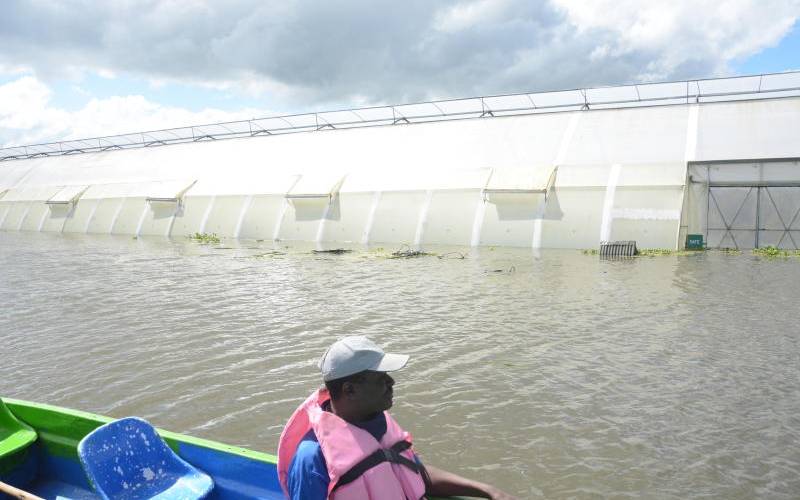
A boat operator passes next to one of the flooded greenhouses near Lake Naivasha whose water levels have risen sharply in the last one year. Experts have warned that the construction of Malewa Dam will lead to the death of the lake. [Antony Gitonga, Standard]
The Dutch government has proposed to fund a scientific study to establish the impact of the Sh35 billion Malewa dam on Lake Naivasha, while hoping to bring to an end the protracted dispute between stakeholders and government agencies on the project funded by the World Bank.